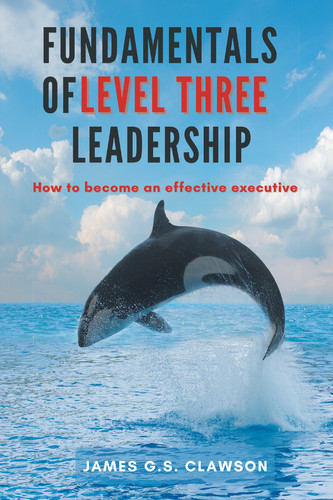34. Managing Your Energy: External and Internal Dreams
Concept
Bill Gates once noted, “When people come to work, it’s important that they be connected to a dream.” This is an important principle of Level Three Leadership—that people are inspired and will give more energy if they believe deeply in what they are doing. Most managers don’t understand this, they simply work at Level One using rewards and punishments to motivate their people. Most likely Gates was referring to an external dream, what people want to do or become. Newburg’s subjects however talked about an internal dream, how they wanted to feel. If one is rich, powerful and famous, but feels miserable, what good is that external success?
The first element in Doug’s resonance model is dream. By this he means something different from what most people think of as a dream. Most people think about what they want to do or become. “I want to be a pilot. I want to be a doctor. I want to be Senator. I want to build skyscrapers.” And so on. Let’s call these achievements external dreams because they are visible.
But what Doug’s interviewees wanted to talk about was how they felt. The premise they discussed was that if you paid attention to how you feel, your performance, paradoxically, goes up. Remember Dave Scott’s statement from the previous chapter.
We might call this one internal dream. They described how they wanted to feel. Jeff Rouse, nine years the world record holder in the 100 meter backstroke and Olympic gold medallist calls it easy speed, when he exerts 80 percent effort but gets 100 percent efficiency. It’s not struggling and straining, rather it is a sense of harmony with one’s surroundings and being at one with the world. Martial artists call it mushin to be without mind, a state in which one can be very dynamic, perform at one’s best but without thinking about what one is doing. In aikido they refer to the unification of mind and body.
We could, I suppose, connect this concept to the elephant in Jon Haidt’s Righteous Mind, already introduced. The pre-conscious knowledge of what to do and the ability to do it very fast. This fast thinking system must be built, however, it is not born with us. During our early years our preferences form and emerge. We gradually become aware of what we like and what we don’t like. Newburg argues that the definition of success is, “when it’s over, you want to do it again.”
Dawn Staley, two time NCAA women’s basketball player of the year, WNBA all-star, Olympic gold medallist, and head coach described it like this: “Everyone wants to win, that’s the goal. But that’s not why I play. I play for the feeling I get when the game’s on the line, and I’ve got the ball.”3
What is that for you? I have only ever met one person who could answer that question immediately. He was a finance professor who said without hesitation, “Buoyant, connected mastery. I love being in the classroom when I can feel the rising tide of enthusiasm and learning, everyone in the room is attentive and connected and driving the conversation, yet underneath it, I know I’m in control of what’s going on.”
Diagram

Source: https://google.com/search?q=images+Jeff+Rouse&tbm=isch&ved=2ahUKEwihr4D9y7zuAhXNi-AKHaEWDFEQ2-cCegQIABAA&oq=images+Jeff+Rouse&gs_lcp=CgNpbWcQAzoCCAA6BggAEAgQHlDqxQVY29QFYMTcBWgAcAB4AIABUogB4wSSAQIxMJgBAKABAaoBC2d3cy13aXotaW1nwAEB&sclient=img&ei=2pwRYKHaCs2XggehrbCIBQ&bih=578&biw=1366&rlz=1C1GCEB_enUS910US910#imgrc=918TO3PePxSprM
https://google.com/search?q=images+Dawn+Staley&tbm=isch&ved=2ahUKEwjv8JuqzLzuAhXRneAKHZL6CcUQ2-cCegQIABAA&oq=images+Dawn+Staley&gs_lcp=CgNpbWcQAzoECCMQJzoCCAA6BggAEAUQHjoECAAQHjoGCAAQCBAeUO6XBFirqARggLIEaABwAH-gAgAGkAYgBnQaSAQM5LjKYAQCgAQGqAQtnd3Mtd2l6LWltZ8ABAQ&sclient=img&ei=OJ0RYO_0PNG7ggeS9aeoDA&bih=578&biw=1366&rlz=1C1GCEB_enUS910US910#imgrc=uObajy2svjvw_M
1. Can you, before you die, figure out how you want to feel?
2. Make it one sentence or less. Remember “happy” is too broad, vague and non-differentiating.
3. Think back on the times when you have been in flow, when you were performing at your best and feeling good. Find the adjectives to describe those feelings. Most of us are not very good at describing our feelings. See if you can find the words.
3 Close words to that effect as reported by Doug Newburg.
